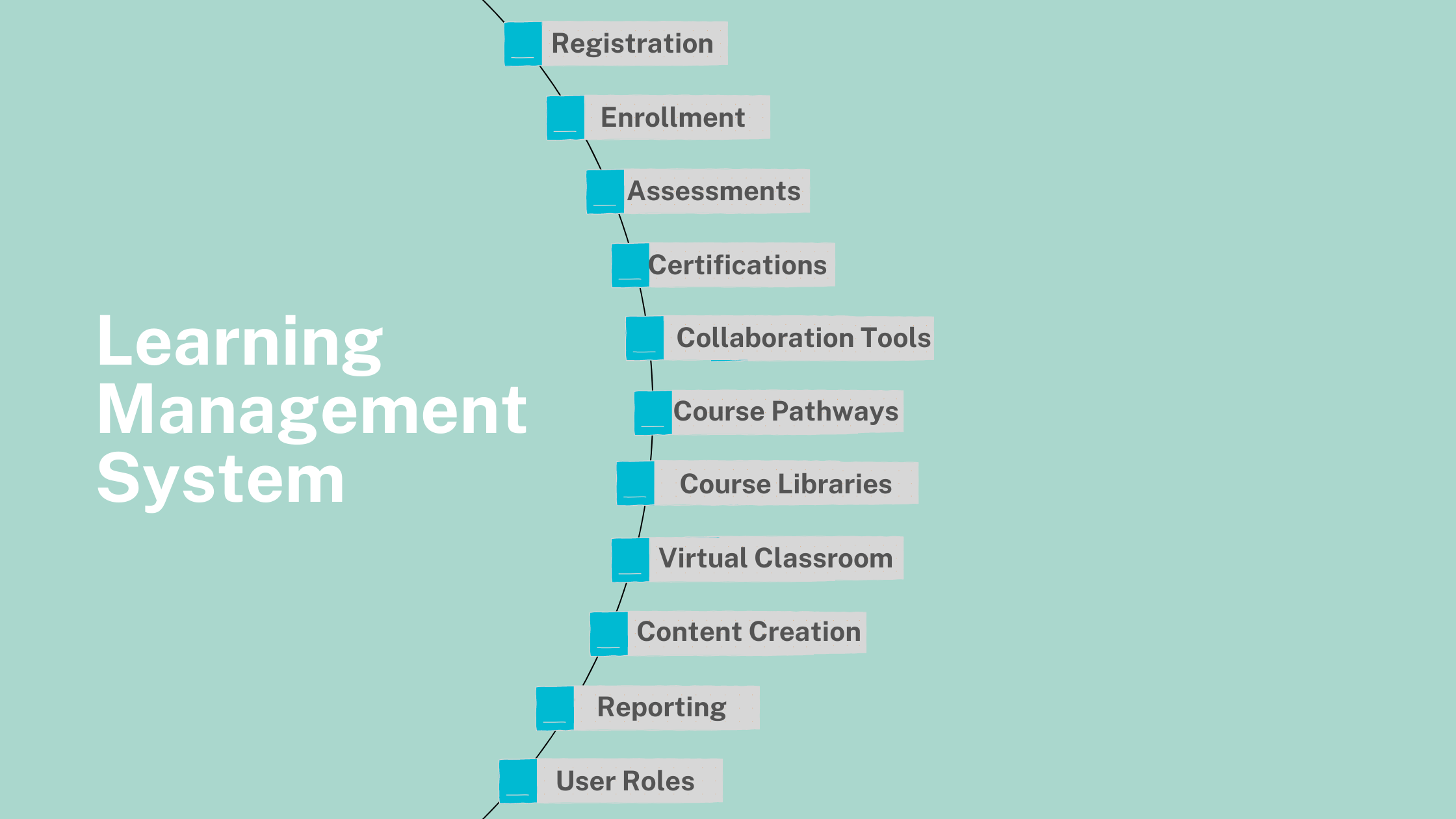Selecting the very best Learning Monitoring System for Your Company
Selecting the optimal Understanding Management System (LMS) for your company is a complex decision that needs careful factor to consider of different aspects. From defining precise discovering goals that reverberate with your calculated vision to assessing individual experience, each factor plays a crucial duty in the total effectiveness of the system. Additionally, comprehending assimilation capacities and ensuring scalability for future needs can not be forgotten. As organizations pursue efficiency and growth, the option of an LMS ends up being increasingly substantial. What are the important considerations that can influence your decision-making process?
Specify Your Discovering Goals
Defining clear understanding purposes is necessary for the successful execution of a Knowing Administration System (LMS) These purposes function as a roadmap, guiding the advancement of material, analyses, and general training strategies within the LMS. By developing details, measurable, achievable, pertinent, and time-bound (WISE) goals, companies can make certain that the discovering experiences are aligned with their strategic objectives and student requirements.
Reliable knowing objectives need to envelop what students are expected to know or have the ability to do upon conclusion of a program or training program. This clearness not just help in web content development but additionally promotes the analysis of learner development and the overall efficiency of the LMS. Learning Management System Singapore. Well-defined objectives make it possible for stakeholders to evaluate whether the selected LMS functionalities and features straighten with their academic objectives.
Assess Customer Experience
Once finding out objectives have actually been established, evaluating individual experience ends up being an important next action in choosing an appropriate Knowing Administration System (LMS) Individual experience incorporates the overall fulfillment and convenience with which learners interact with the system. A properly designed LMS should facilitate instinctive navigating, making sure that individuals can situate courses, materials, and assistance effortlessly.
To examine user experience, think about carrying out use testing with a representative example of end-users. Key aspects to evaluate include the LMS's interface style, availability features, mobile compatibility, and the quality of directions offered.
In addition, review the availability of assistance resources, such as tutorials and aid centers, which can boost the user experience. The responsiveness of consumer support is also important; timely aid can substantially reduce aggravations that customers may come across. Ultimately, choosing an LMS that prioritizes individual experience not just enriches the learning process but also promotes higher interaction and contentment among students.

Evaluate Integration Capabilities
Acknowledging the importance of smooth capability, reviewing combination abilities is critical when choosing a Knowing Management System (LMS) An effective LMS should help with interoperability with existing systems, such as Personnel Administration Systems (HRMS), Consumer Connection Management (CRM) systems, and various other instructional devices. This combination enhances data circulation, minimizes administrative burdens, and makes sure a natural discovering setting.
When analyzing an LMS, consider the kinds of integrations offered. Look for Application Programs Interfaces (APIs), Single Sign-On (SSO) capabilities, and pre-built adapters that simplify assimilation processes. Additionally, verify the LMS's capacity to incorporate with third-party tools, such as content libraries or analysis platforms, which can considerably enrich the discovering experience.

Consider Scalability and Flexibility
As companies progress, the capability of an Understanding Monitoring System (LMS) to range and adapt comes to be increasingly crucial. A scalable LMS can fit growth in individual numbers, program offerings, and material without compromising performance or user experience. As businesses increase, whether via boosted employees, new areas, or diversified training demands, the LMS must seamlessly grow along with these adjustments.
Flexibility is similarly important; an efficient LMS has to sustain various discovering modalities, such as online, mixed, and mobile learning. This flexibility enables organizations to respond rapidly to arising trends in training and growth, Discover More guaranteeing that they can provide engaging and relevant knowing experiences - LMS Singapore. Additionally, the system must supply customizable features, allowing companies to customize the read more LMS to their specific needs and branding
Furthermore, an adaptable LMS should incorporate easily with existing devices and systems, assisting in a natural knowing ecosystem. Hence, when selecting an LMS, it is critical to examine not only its current abilities however likewise its possible to adapt and expand in alignment with the organization's strategic objectives and evolving discovering requirements. This insight can substantially enhance the long-term stability of the picked LMS.
Review Prices and Budgeting
When assessing a Knowing Administration System (LMS), reviewing costs and budgeting is necessary to make certain that the investment lines up with the organization's strategic goals and financial capacities. Organizations must start by identifying the total expense of ownership, which includes licensing costs, implementation prices, maintenance, and any kind of additional expenditures such as training and technological support.
It is vital to contrast numerous LMS choices, as pricing versions can vary substantially amongst vendors. Some systems might provide a subscription-based version, while others might bill an one-time charge. Organizations needs to additionally consider the scalability of the LMS; as they grow, the cost structure may transform, influencing lasting budgeting.

Final Thought
Choosing a proper Knowing Management System (LMS) is necessary for accomplishing organizational understanding objectives. An extensive analysis of user experience, integration abilities, scalability, and financial considerations ensures that the chosen LMS lines up with calculated goals and student needs. By systematically addressing these variables, organizations can boost finding out outcomes, assist in smooth operations, and support future development. Inevitably, the right LMS works as a pivotal device in cultivating a reliable knowing environment and driving organizational success.
Picking the ideal Learning Management System (LMS) view publisher site for your company is a complex choice that requires careful consideration of various components.Specifying clear knowing goals is essential for the successful application of a Learning Administration System (LMS)Once learning goals have been developed, evaluating customer experience comes to be a vital next step in choosing a proper Understanding Monitoring System (LMS)As companies progress, the capability of an Understanding Administration System (LMS) to range and adjust becomes progressively vital.Choosing an appropriate Understanding Management System (LMS) is important for accomplishing organizational learning goals.